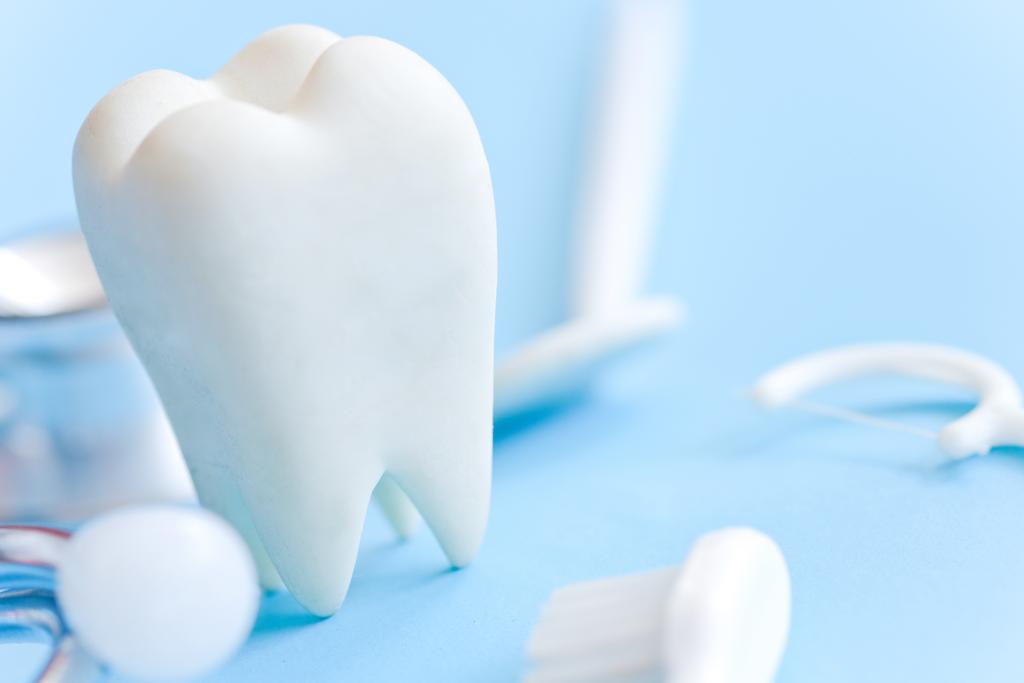Dental crowns are a common dental procedure that can help to restore the function and appearance of your teeth. They are typically made from porcelain or ceramic and are designed to match the colour of your natural teeth. While dental crowns are a durable and long–lasting solution, they are not permanent, and will eventually need to be replaced.

What Factors Affect The Lifespan of a Dental Crown?
When it comes to dental crowns, there are a number of factors that can affect how long they last. Here are a few of the most common:
The type of dental crown. The most common type of dental crown is made from porcelain-fused-to-metal (PFM). These crowns typically last between five and 15 years. However, there are also all-ceramic and all-porcelain crowns that can last even longer – up to 20 years or more.
The location of the dental crown. Dental crowns that are located in the back of the mouth (molar teeth) tend to last longer than those in the front (anterior teeth). This is because the back teeth are used less frequently and are less likely to experience wear and tear.
The oral hygiene habits of the patient. Patients who practice good oral hygiene habits – including brushing twice daily, flossing regularly, and using a mouthwash – are more likely to have dental crowns that last longer. This is because these habits help remove plaque and bacteria from the teeth, which can lead to decay and other problems.
The amount of stress on the dental crown. Patients who have a habit of clenching or grinding their teeth (bruxism) are more likely to experience wear and tear on their dental crowns. This can shorten the lifespan of the crown.
The quality of the dental crown. Dental crowns that are made from high-quality materials and that are properly placed by an experienced dentist are more likely to last longer.
How To Prolong The Lifespan of Dental Crowns?
Dental crowns are a common dental procedure that can help to improve the appearance and function of your teeth. However, like all dental procedures, they are not permanent and will eventually need to be replaced. There are a few things that you can do to prolong the lifespan of your dental crowns and help them to last as long as possible.
- Brush and floss your teeth regularly: This is important for both your natural teeth and your dental crowns. Brushing and flossing help to remove plaque and bacteria from your teeth, which can help to prevent tooth decay and gum disease. Be sure to brush gently around your dental crowns so that you don’t damage them.
- See your dentist regularly: Regular dental checkups are important for the health of your teeth and gums. During these appointments, your dentist can check for any problems with your dental crowns and make sure that they are still in good shape.
- Avoid chewing on hard objects: Chewing on hard objects, such as ice or hard candy, can damage your dental crowns. If you must chew on something hard, be sure to use your back teeth so that you don’t put unnecessary pressure on your crowns.
- Don’t use your teeth as tools: Your teeth are not designed to be used as tools, such as for opening bottles or ripping open packages. Doing so can damage your dental crowns and other teeth.
If you take care of your dental crowns, they can last for many years. However, eventually, they will need to be replaced.
Signs That Dental Crowns Need To Be Replaced
The first sign that your dental crowns may need to be replaced is if they become loose. This can happen for a variety of reasons. It could be that the crown was not fitted properly in the first place. It could also be that the underlying tooth has decayed, causing the crown to become loose.
If your crown is loose, it’s important to see a dentist as soon as possible. If the crown is not replaced, the underlying tooth could become further damaged.
Another sign that your dental crowns may need to be replaced is if they start to discolour. This is usually a sign that the crown is not made of porcelain and is instead made of metal. As time goes on, the metal can start to show through the porcelain, causing a yellow or brown discolouration.
If your crowns are discolouring, it’s important to see a dentist to get them replaced. Porcelain crowns are much more expensive than metal crowns, but they will last longer and look better.
Finally, another sign that your dental crowns may need to be replaced is if they become cracked. Cracks in dental crowns are usually caused by biting down on hard objects. If you notice a crack in your crown, it’s important to see a dentist right away.
If you have any of these signs, it’s important to see a dentist to get your dental crowns replaced.
Back to top: How Long Do Dental Crowns Usually Last?